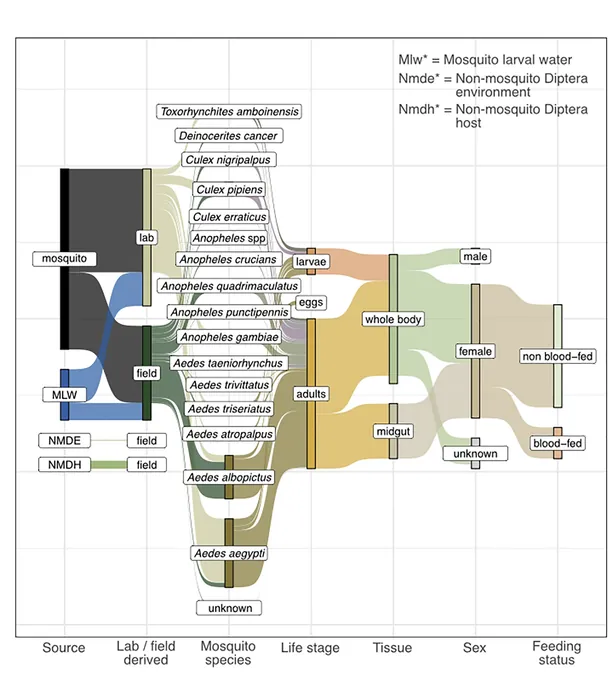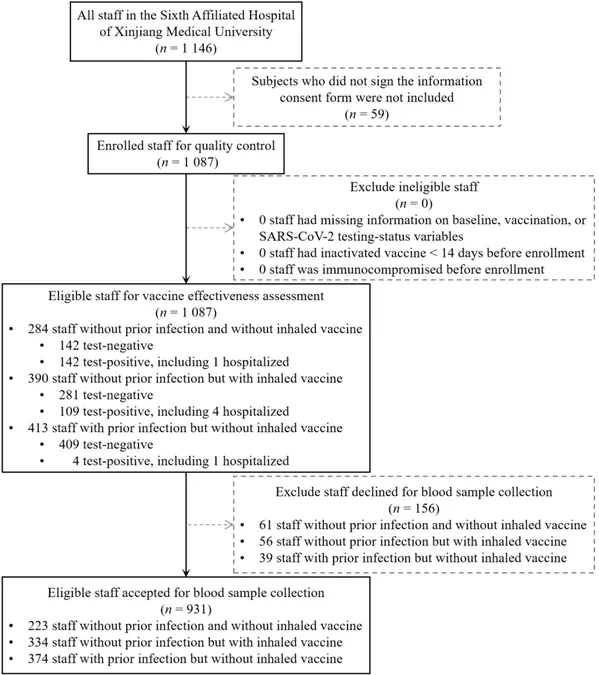
Breakthrough Tool Aimed at Eradicating Mosquito-Borne Diseases Revealed!
2024-12-12
Author: Jia
Introduction
As mosquito-borne diseases continue to wreak havoc globally, accounting for over 17% of all infectious diseases according to the World Health Organization, a new ray of hope has emerged. A groundbreaking initiative aims to reduce the transmission of these diseases, which claim more than 700,000 lives annually—many of whom are children under the age of five. Among these devastating illnesses, malaria stands out with approximately 249 million cases reported globally each year, leading to more than 608,000 fatalities.
MosAIC Initiative
In a pioneering move, researchers from the UK and the US have launched the MosAIC (Mosquito-Associated Isolate Collection) initiative. This comprehensive project is the first of its kind to create an extensive repository of microbiomes associated with mosquitoes, categorizing both genome data and bacterial isolates. By unveiling the intricate relationships between various bacteria and their mosquito hosts, scientists hope to shed light on how these interactions influence the mosquitoes' ability to carry and transmit dangerous pathogens, including deadly viruses like dengue and Zika.
Mosquitoes and Climate Change: A Rising Threat
The effects of climate change could exacerbate the situation, with the potential to expand the geographical range of habitats capable of supporting mosquitoes. Recently, multiple cases of encephalitis linked to these blood-feeding insects have been reported in the UK. In response, the UK Health Security Agency has implemented an early warning system to help swiftly identify and respond to potential outbreaks, highlighting the urgent need for innovative solutions to combat mosquito-borne diseases.
Understanding Microbiomes
With over 3,700 mosquito species across the globe yet a limited understanding of their complex microbiomes, the MosAIC initiative represents a significant leap forward. Bacterial isolates have been sourced directly from mosquitoes and their environments, which have been subjected to whole-genome sequencing. This process not only allows for the creation of an invaluable culture collection but also opens the door to publicly accessible data that will enhance our understanding of how these microbial communities can influence disease transmission.
A Promising New Approach
As insecticide resistance among mosquitoes becomes an increasing concern, researchers believe that manipulating the microbiome of these insects may offer a viable alternative for disease control. Dr. Eva Heinz from the University of Strathclyde emphasized the pressing need for deeper insights into mosquito microbiomes, stating, "This collection could be pivotal in developing a new tool for vector control and disease management."
With an astounding increase from 35 to 392 bacterial genomes associated with mosquitoes, this newly formed repository could pave the way for innovative and natural approaches to combat mosquito-borne diseases. Laura Brettell from the University of Salford notes that the findings from this research could lead to the discovery of novel strategies to utilize naturally occurring bacteria in the fight against these critical global health challenges.
Conclusion
In a world grappling with the deadly implications of vector-borne diseases, the MosAIC initiative offers hope for a future where we can better understand and potentially outsmart these menacing insects. Stay tuned for further updates as this exciting research progresses!




 Brasil (PT)
Brasil (PT)
 Canada (EN)
Canada (EN)
 Chile (ES)
Chile (ES)
 España (ES)
España (ES)
 France (FR)
France (FR)
 Hong Kong (EN)
Hong Kong (EN)
 Italia (IT)
Italia (IT)
 日本 (JA)
日本 (JA)
 Magyarország (HU)
Magyarország (HU)
 Norge (NO)
Norge (NO)
 Polska (PL)
Polska (PL)
 Schweiz (DE)
Schweiz (DE)
 Singapore (EN)
Singapore (EN)
 Sverige (SV)
Sverige (SV)
 Suomi (FI)
Suomi (FI)
 Türkiye (TR)
Türkiye (TR)